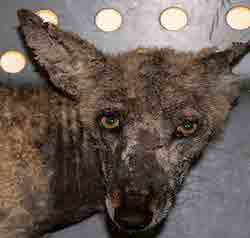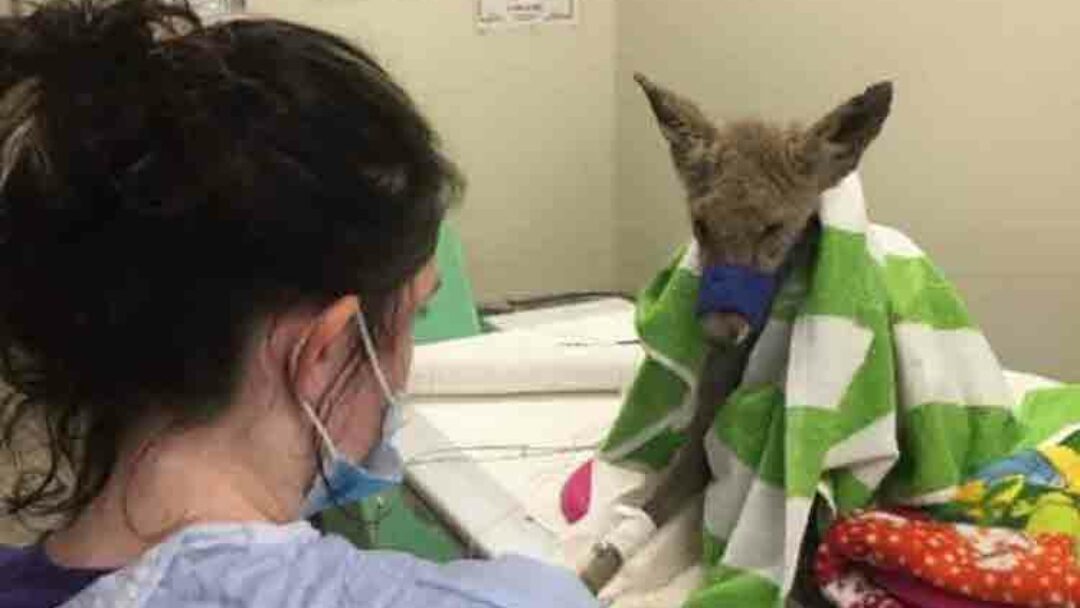The Phoenix-based wildlife conservation center is calling for a decrease in the use of rodenticides, as the Valley is experiencing an alarming increase in illness in coyotes.
According to a press release, the Southwest Wildlife Conservation Center (SWCC), a nonprofit organization dedicated to rescuing and rehabilitating animals, has observed an increase in severe illnesses, resulting in death or near-death, among coyotes in Sun City.
The center has received several reports of animals that appeared unwell, unable to move, and exhibiting signs of thickened skin and hair loss.
According to the center, the sicknesses are a result of rodenticides. The chemicals found in rodenticides can compromise the immune system of coyotes, leaving them vulnerable to parasites that are responsible for causing mange.

Photo Credit: Southwest Wildlife
Although treatment may be effective for certain cases of mange caused by rodenticides, not all instances are detected early enough for successful intervention. However, even if the affected animals receive treatment, they may not be able to be released due to either becoming too dependent on humans or too debilitated to survive on their own.
In addition, the use of rodenticide chemicals can have a ripple effect on the food chain, potentially harming a variety of animal species.
Due to the alarming pattern, the center is urging both the general public and pest control businesses to reduce their usage of rodenticides and explore alternative, less detrimental approaches.
The Southwest Wildlife advises beginning with prevention, which includes getting rid of any potential food sources that could attract rats, such as bird seed, pet food, or fallen fruit.
To effectively diagnose pest concerns, it is advisable to seal any openings in roofs and areas surrounding pipes or electrical cables to prevent rats from entering homes. Additionally, maintaining cleanliness in both indoor and outdoor spaces is also essential.
It is recommended to utilize rat traps, including electrical shock traps, if needed, as a more compassionate alternative.
The center urges the community to raise awareness about the hazards of using rodenticides and to educate them on alternative methods of pest control.








